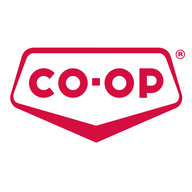
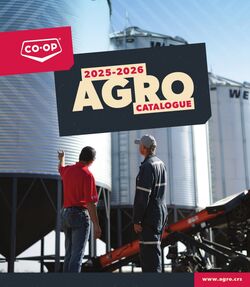

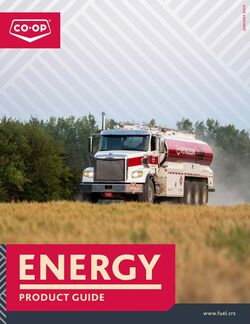
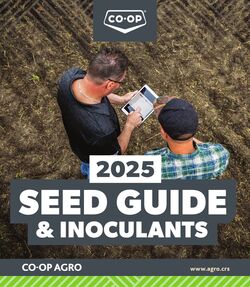

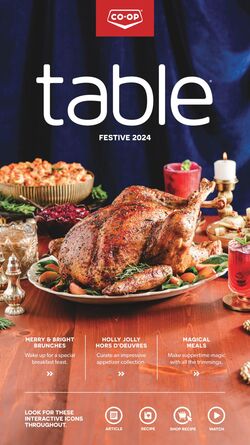
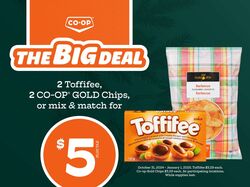






Products in this flyer
Good stands, excellent disease resistance, and high yields are making two Nuseed canola varieties increasingly popular with prairie growers. The new varieties - NC527CR TF and NC471 TF — join Nuseed's previously released 355TF variety to complete a suite of top-notch genetics developed specifically for Western Canada. All three are Co-op exclusive products and have repeatedly been tried and tested by Co-op Grow Team members and their customers. Outperforming leading competitors Shyla Verbonac, certified crop advisor and sales agronomist at Lake Country Co-op in Shellbrook, Sask,, said 2023 field trials in her area showed NC527CR TF and NC471TF could easily keep up with leading competitors. “The Nuseed products outperformed expectations and were not out of place alongside other popular TrueFlex varieties all season long,” said Verbonac. “The NC527CR TF really shone through at harvest time, winningthe trial and providing the grower with ahigh-yielding and easy-threshing hybrid. This was thanks in part to excellent podding depth and robust pods, all while having the least plant material to go through the combine. NC471 TF was tall, but stood excellent, swathed and combined well." Curtis Henderson, the grower working alongside Verbonac, expressed the same sentiment and reiterated that NC527CR TF was both easy to combine and the highest yielding. Verbonac added that such good results were achieved after a growing season that was not without challenges, including a dry July, some heat-related damage at blooming, and a hail event during late bolting, “Things came offreally strong. When you're talking 8- to 10-bushel difference ina field trial it's significant. It's very exciting to have exclusive access to canola hybrids that can compete alongside leading varieties within the marketplace." Blackleg and clubroot resistance For AL Crozon, sales agronomist for Nuseed Canada, trials like those conducted by Verbonac have been vital in getting more growers familiar with and interested in the new canola hybrids. “When growers plant Nuseed canola, the first thing they will notice is rapid emergence and good ground cover. That's important because when it's slow and doesn't look strong, farmers will be concerned about their canola fields all season Long, This gives them peace of mind and a level of comfort as the season starts," Crozon said. “The Co-op exclusive hybrids are as good or better than any competitor on the market." Multi-genic blackleg resistance is a critical part of both NC527CR TF and NC471 TF. The former's “second- generation” clubroot resistance, in particular, has helped propel its popularity among prairie growers. “Nuseed's most popular hybrid in Western Canada is NCS27CR TF, as growers really desire that clubroot resistance,” said Crozon. Tailoring new varieties to regional differences The current trio of Nuseed canola varieties is only part of a growing partnership between the Australian genetics company and Co-op. According to Lane Christiansen, Manager of Agronomie Market Development at Federated Co-operatives Limited, the foundational intention of Co-op's partnership with Nuseed was to add more value to a brand that Co-op customers already know and trust “Nuseed is a veryreputable company in Australia, We were very impressed with their breeding program and genetics,” said Christiansen “One reason we looked to Nuseed was because of its blackleg disease resistance portfolio. It's top-of- the-line, and we thought it would help differentiate our private-label brand. They also breed in clubroot resistance, whichis a growing problem across Western Canada. Having a company already with that genetic portfolio is very good for us and our farm customers." In the future, Co-op plans on expanding the canola varieties on offer. “| think we did a good job introducing the first three to Western Canada. From here, | think we start tailoring it to different regions,” said Christiansen. This could involve, for example, developing different canola varieties suited to different disease pressures, herbicide tolerances, harvestability requirements and yield. “What happens in Southern Albertais totally different to what happens in Northern Alberta or Northern Saskatchewan. We’re going to bring varieties that work in every territory." To learn more about Nuseed canola, contact your local Grow Team member. Co: Le) "EE EX)
| Name | Details |
|---|